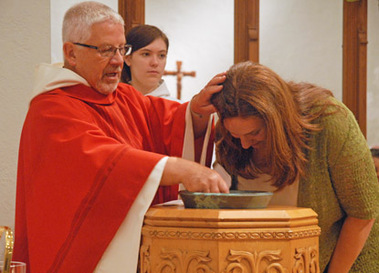Psalm 119 is the longest chapter in the Bible, with 176 verses. Of those verses, only three don't contain a word referring to the scriptures, such as law, commandments, or testimonies. The Psalm is 176 references to the benefits of God's Word in the life of the believer. I will focus on the section labeled "Waw," verses 41-48.
"Let Your steadfast love come to me, O Lord, Your salvation according to Your promise; then shall I have an answer for him who taunts me, for I trust in your Word. And take not the word of truth utterly out of my mouth, for my hope is in Your rules. I will keep Your law continually, forever and ever, and I shall walk in a wide place, for I have sought your precepts. I will also speak of Your testimonies before kings and shall not be put to shame, for I find my delight in Your commandments, which I love. I will lift up my hands toward Your commandments, which I love, and I will mediate on Your statutes" (Psalm 119:41-48).
The Psalmist here uses the same encouragement that Jesus gave to His disciples: "Behold, I am sending you out as sheep in the midst of wolves, so be wise as serpents and innocent as doves. Beware of men, for they will deliver you over to courts and flog you in the synagogues, and you will be dragged before governors and kings for My sake, to bear witness before them and the Gentiles. When they deliver you over, do not be anxious how you are to speak or what you are to say, for what you are to say will be given to you in that hour. For it not you who speak, but the Spirit of your Father speaking through you" (Matthew 10:16-20).
In both passages, it is the source of our answers that should give us confidence, because it is the very Word of God, inspired by the Holy Spirit. The rest of Psalm 119 relays the means to this end, the constant study of, and obedience to, the Word of God.
What is often forgotten in our apologetical confrontations is that there is no promise in Scripture that God will give success to our clever response. Rather, He promises His power to attend His word: "So shall My word be, that goes out from My mouth; it shall not return to Me empty, but it shall accomplish that which I purpose, and shall succeed in the thing for which I sent it" (Isaiah 55:11).





